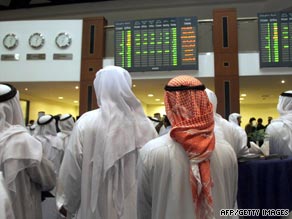
Islamic finance is estimated to be worth $700 billion and has been growing by 15 to 20 percent per year.
Now, a slew of academic courses are springing up to meet the demand of those wanting to break into an expanding market.
According to ratings agency Moody's, the global Islamic finance sector is worth $700 billion and has the potential to be worth $4 trillion.
What's more, the ethical principles underpinning Islamic finance are seen by some as offering a more sustainable alternative to profit-oriented conventional banking. The result is that academic institutions are lining up to offer formal training in the area.
"There is a huge demand for Islamic finance courses now, so large that it's difficult to cope with," Professor Habib Ahmed, Sharjarh chair in the school of government and international affairs at Durham University, England, told CNN.
Durham will launch a Masters degree in Islamic finance from October, becoming one of a number of European institutions to offer Islamic finance programs.
"Islamic finance has been growing by 15 to 20 percent per year for some time and there is a lot of interest at the moment. People are looking for alternatives after the economic crisis."
"Islamic economists believe that if the principles of Islamic finance were followed the crisis wouldn't have happed. We are seeing a lot of non-Muslim countries, including the UK, France, Japan, Hong Kong and Singapore encouraging Islamic finance," he said.
There are many differences between Islamic and conventional banking practices. One fundamental difference is that Islamic banks do not charge interest. Rather than borrowers and lenders, the system is based on buyers and sellers.
"Conventional banking is biased to the seller. Islamic finance is trying to level the ethics between the two parties," Aly Khorshid, an Islamic finance scholar who writes for Islamic Banking and Finance magazine, told CNN.
"People think the Islamic system is based on faith, but it's based on justice. Read more here ...
Source: CNN




















